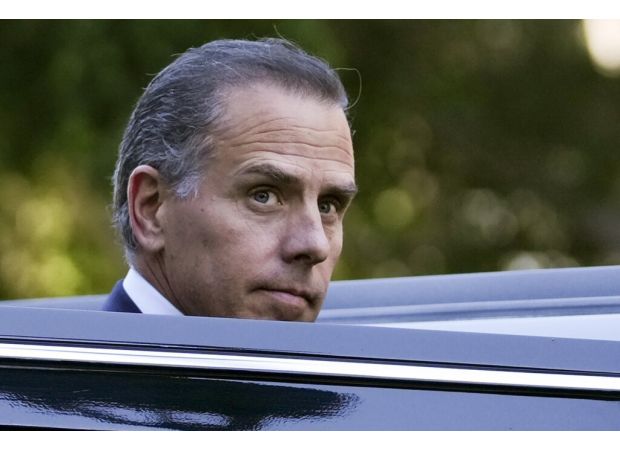Biden has forgiven his son, Hunter. What are the implications of this?
President Biden promised not to pardon his son, Hunter, who faced possible legal issues.

President Joe Biden had been adamant in his promise not to pardon his son, Hunter, who was facing sentencing this month for gun and tax convictions. However, on Sunday, the president surprised many by announcing that he was granting his son a pardon.
This pardon not only covers Hunter Biden's convictions in Delaware and California, but also any other federal offenses he may have committed between January 1, 2014 and December 1, 2024. While it is not uncommon for presidents to use their pardon powers to benefit those close to them, it was still a surprising move for a man who had pledged to uphold norms and respect for the rule of law.
Some may be wondering, what exactly is a pardon? According to the U.S. Constitution, a president has the power to grant clemency, which includes pardons and commutations. Pardons forgive federal criminal offenses, while commutations reduce penalties but are not as sweeping. This power has its roots in English law and has been exercised by presidents throughout history. For example, former President Donald Trump granted 237 acts of clemency during his time in office, while former President Barack Obama granted clemency 1,927 times during his eight years in office.
It is important to note that a president can only grant pardons for federal offenses and cannot pardon state offenses or impeachment convictions. So, what were the crimes Hunter Biden was accused of committing? Hunter was found guilty of lying on a federal form when purchasing a gun in 2018 and also pleaded guilty to charges related to a tax evasion scheme that involved over $1 million. Both cases stemmed from a period in Hunter's life when he was struggling with drug and alcohol abuse, but he has since become sober in 2019.
Many were anticipating the sentencing in both cases, as it was expected to reveal details about Hunter's foreign business dealings and potentially paint the Biden family in a negative light. However, the president's pardon has put an end to that. Hunter's legal team has claimed that he was unfairly targeted because of his last name, and the president's decision to pardon his son seems to support this claim.
Interestingly, President Biden had previously stated that he would not pardon his son, even as recently as November 8th. He had also expressed pride in Hunter for overcoming his addiction and said he would abide by the jury's decision. So, what changed? In his statement announcing the pardon, President Biden cited concerns about his son being "selectively and unfairly" prosecuted and the pressure from political adversaries. He also mentioned that he is no longer running for office, as he had made this promise before dropping out of the presidential race in June.
It is not uncommon for presidents to grant pardons to family members or friends. In fact, former President Trump pardoned his son-in-law's father, Charles Kushner, and multiple allies convicted in the Mueller investigation during his last days in office. Former President Bill Clinton also pardoned his half-brother and former business partner, showing that the use of pardon powers for personal connections is not a new phenomenon.
In the end, President Biden's decision to pardon his son has sparked some controversy and raises questions about the potential misuse of pardon powers. However, the president remains firm in his belief that Hunter was unfairly targeted and that enough is enough. Only time will tell if this pardon will have any lasting impact on the Biden family's reputation.






